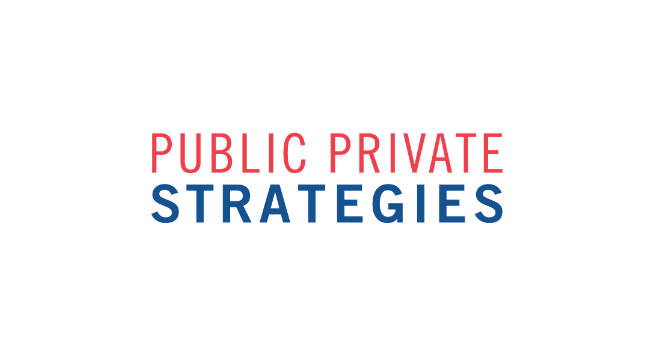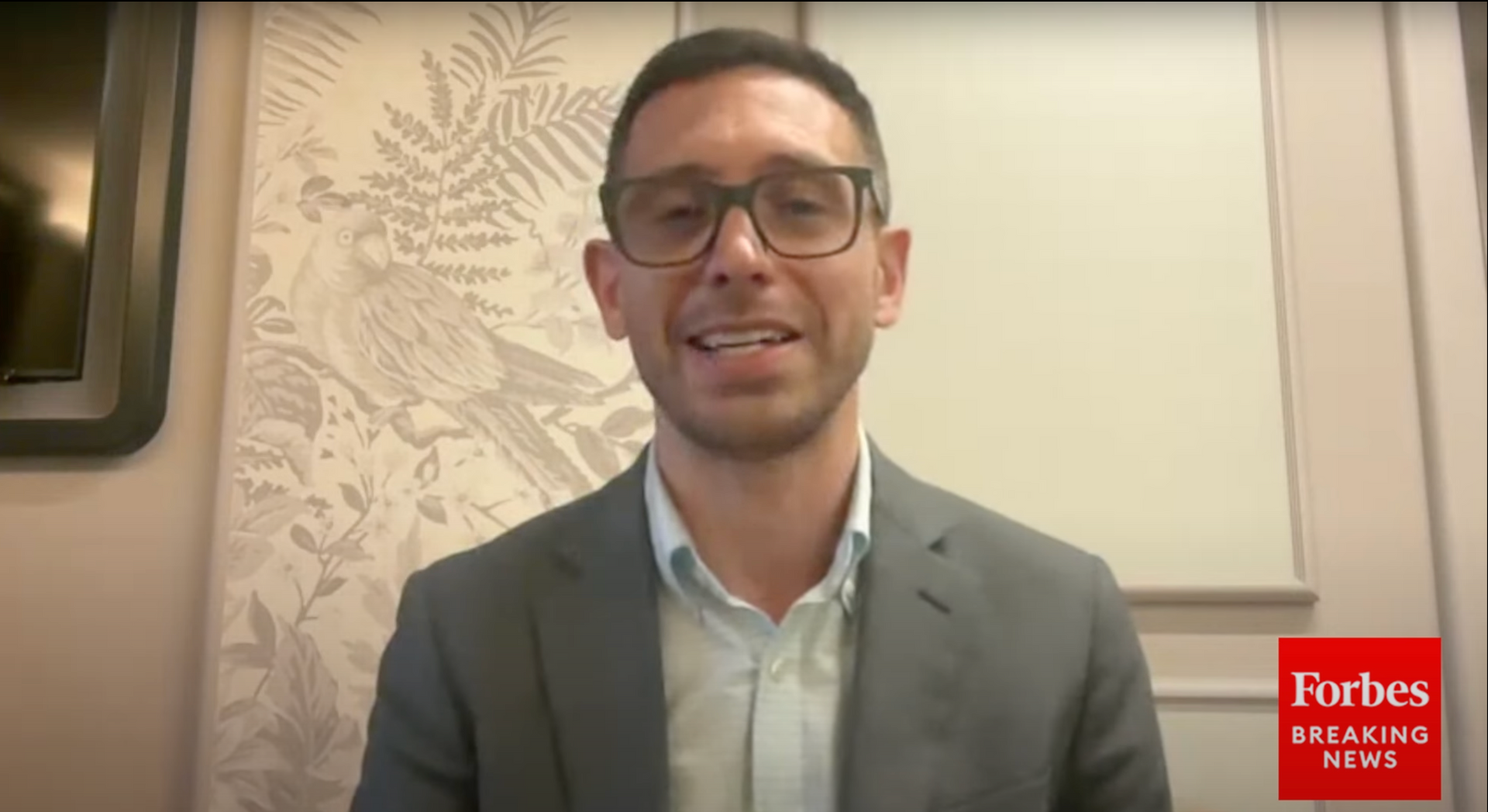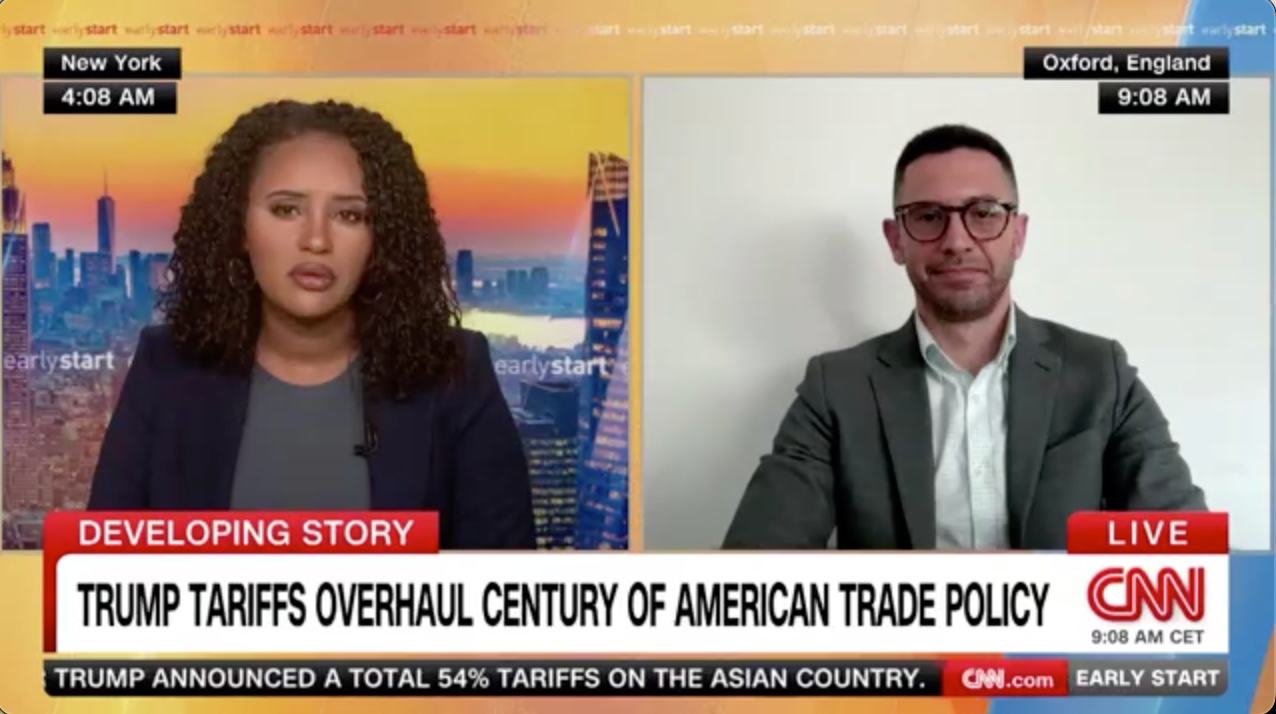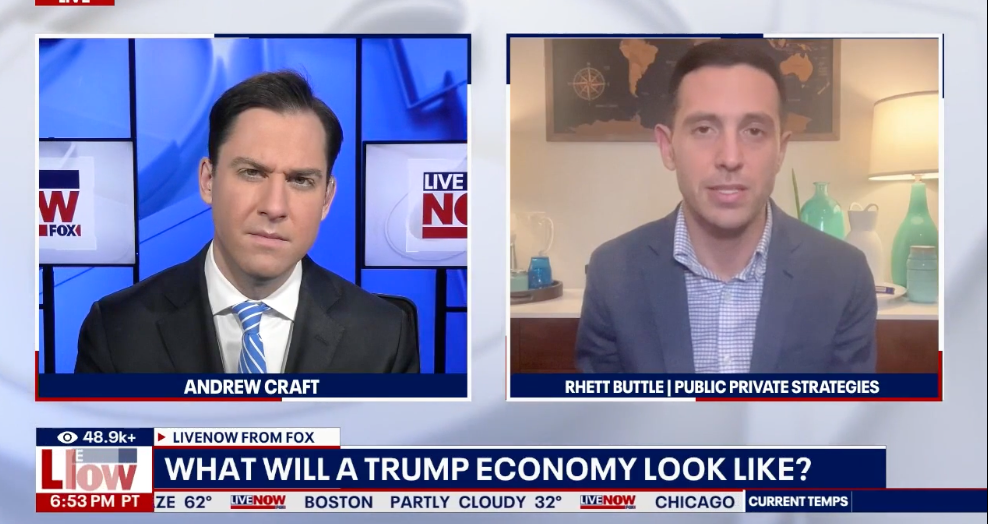What President Biden’s Executive Order On Competition Means For Small Businesses
At the signing of an Executive Order ink to summary on July 9 to promote competition in the American economy, President Joe Biden stated, “The heart of American capitalism is a simple idea: open and fair competition — that means that if your companies want to win your business, they have to go out and they have to up their game; better prices and services; new ideas and products.” The Executive Order directs every agency to address corporate consolidation and remove barriers that hinder innovation. This order, which is intended to lower prices for consumers, increase wages, and promote faster economic growth, can give small businesses and aspiring entrepreneurs across the country a much needed level playing field.
As the Co-Chair of Small Business for America’s Future, Frank Knapp Jr.,
summarized, this Executive Order “is an effective first step to creating a more equitable business environment for Main Street.” Another small business coalition, Small Business Rising said, “Today’s executive order is another sign that federal policymakers are serious about restoring competition and leveling the playing field for independent businesses, and we applaud the Biden Administration for taking this important step forward.”
But what does this all mean and let’s put it into some context.
Take a look at any Main Street across the country and you can see the effects of corporate consolidation. In the past 20 years, the number of companies controlling more
than 75% of U.S. industries, including healthcare, financial services, and agriculture, has dwindled. This makes it harder for small and aspiring businesses with good ideas to break into markets, as the
rate of new businesses forming has dropped by nearly 50% since the 1970s.
This consolidation does not make life easier for consumers and workers either. It makes it harder by driving up prices for goods and services and stagnating wages. Mark-ups, or charges over cost,
have tripled since the 1980s and
additional research finds that consolidation is decreasing advertised wages by as much as 17%. A
report by the American Economic Liberties Project (AELP) estimates that this costs the median American household $5,000 per year. AELP’s Sarah Miller also stated on Biden’s move, “This order mandates that every agency in the federal government take on the problem of corporate concentration. With its initial recommendations, the White House is reshaping a broad range of highly concentrated markets, helping to unlock the full potential of the millions of innovators, producers, and workers that form the bedrock of America’s economic strength and dynamism, while also helping to protect families from price-gouging monopolists in industries ranging from airlines to internet services to medical devices.”
President Biden’s Executive Order has 72 specific initiatives intended to lower prices and raise wages. Some should immediately help consumers, including provisions directed at excessive early internet termination fees and airline refunds. Others will foster long-term growth on Main Streets across America. Here are six initiatives in the Executive Order that may affect small businesses.
1. Federal Contracting
The order builds on a previous Executive Order focused on making federal contracting more equitable by directing all federal agencies to increase competition in their procurement and spending decisions. Smaller businesses often have difficulty applying for federal contracts because of burdensome requirements and regulations. This initiative will create more opportunities for small businesses to apply for and receive them. In a Tweet, the US Hispanic Chamber of Commerce applauded the Executive Order by saying, “competition in the American economy. It has 72 initiatives by federal agencies and opens new doors for small minority-owned businesses in the U.S. supply chain and federal procurement opportunities.”
2. Healthcare Costs and Drug Prices
A recent survey of small business owners found that 87% believe it is important that the Biden Administration and Congress take action to lower prescription drugs costs and 55% of businesses providing coverage to employees say the rising costs of healthcare have delayed growth opportunities. The Executive Order also instructs the Food and Drug Administration, Federal Trade Commission (FTC), and the U.S. Patent and Trademark Office to identify and address anti-competitive behaviors and patent abuses that impede price competition from generic drugs and biosimilars. More competition will lead to lower drug prices.
3. Non-compete Agreements
Being able to freely move to another job or leave to start a business is a critical piece of an entrepreneur-driven economy. However, millions of Americans in a wide range of industries are required to sign non-compete agreements when they take a job. Not only does this make it harder to leave for a better-paying position, it also makes it more difficult for them to take their ideas and experience honed during a career and start their own business. President Biden’s Executive Order encourages the FTC to ban or limit non-compete agreements.
4. Repairing Appliances
Many companies prohibit consumers from repairing their products or taking them to a third-party vendor by invalidating their warranties if they do. This is costly and inefficient and stifles opportunities for small business repair shops. The order directs the FTC to issue rules making it easier and cheaper to repair items by limiting manufacturers from barring self-repairs or third-party repairs of their products.
5. Shipping Goods
In maritime shipping, the 10 largest shipping companies control more than 80% of the market, enabling them to charge American manufacturers hundreds of thousands of dollars in fees for the time their goods sit waiting to be loaded or unloaded. President Biden’s Executive Order encourages the Federal Maritime Commission to vigorously prohibit shippers from charging American exporters these exorbitant fees.
6. Unfair Marketing Practices by Online Platforms
Covid-19 showed us the important role going online and digital tools can play in helping small businesses grow or mitigate an unknown crisis. At the same time, we need to make sure we have strong federal rules that protect consumers and level the playing field for small businesses. Small businesses leverage and rely on the online marketing tools of larger technology companies’ platforms to reach customers. These companies can then study the small businesses’ products and how they sell, and in some cases, undercut the small business by creating their own copycat products and display them more prominently. President Biden directs the FTC to create rules barring this unfair practice.
Healthy competition is what makes the American Dream possible. If this Executive Order is fully implemented well, it has the ability to help produce thriving Main Streets and improve the quality of life for millions of Americans.
This piece originally appeared in Forbes on July 13, 2021. You can view it online here.
Rhett Buttle is the founder of Public Private Strategies, Executive Director of the Small Business Roundtable, Founder of the NextGen Chamber of Commerce, a Senior Fellow at The Aspen Institute, and a contributor for Forbes.
WANTING MORE NEWS? SIGNUP TODAY
Contact Us







